Original 'Westworld' Movie Vs HBO Series
While fans of the HBO series may be excited to watch the original film, Michael Crichton's original 'Westworld' is a very different film, focusing less on speculative questions of the human condition, and more on bad-ass horror.

HBO's Westworld has become one of the biggest science fiction shows in recent memory—so big, in fact, that many forget that it is a reimagining of a small 1970s film. Michael Crichton's directorial debut, following the success of the film adaptation of his novel The Andromeda Strain achieved cult-classic status in the science-fiction starved early-70s.
Many people have seen the new series, but few have watched the original film. While fans of the HBO series may be excited to watch the original film, Michael Crichton's original Westworld is a very different film, focusing less on speculative questions of the human condition, and more on bad-ass horror.
Same Concept, Different Plot
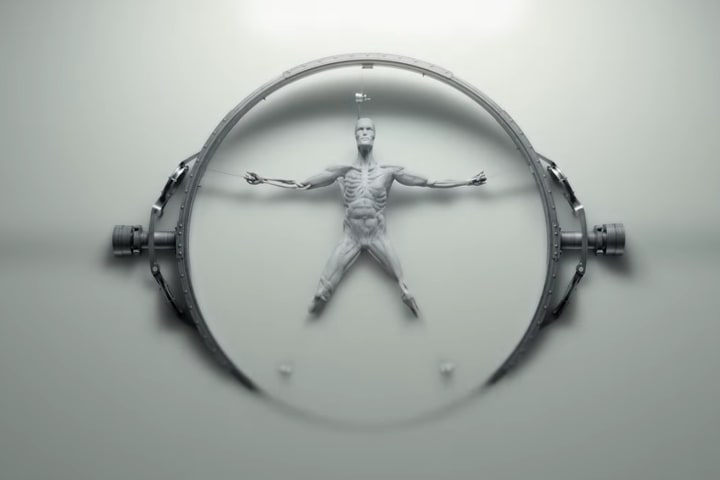
It is important to establish that both versions of Westworld share the same essential concept.
Both are science fiction series about fictionalized theme parks featuring life-like androids. Both feature people who visit the theme park, and both feature a bald man in a hat running amuck, causing chaos. Cyborgs malfunction, which results in chaos for everyone.
Both deal with a theme park set in the Old West, where the super rich can essentially LARP as people out in the West.
If we were to stop here, then both the original film and the series would sound fairly similar. But to stop here would be a disservice to both the film and the series it inspired.
The Parks
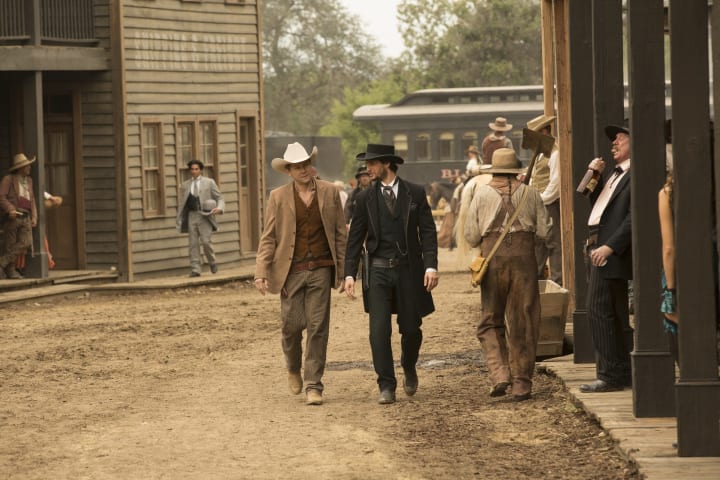
West World is not the only park in the original film. While the staff behind the series have bounced around the idea of exploring the other parks, the original film features Medieval World and Roman World, where rich folks can LARP not only cowboys, but also knights and Romans. Even the sequel to the original film, Futureworld, presents more alternative parks.
However, the film primarily does not focus on these other parks, instead putting a focus on West World.
As of now, the series Westworld has given little indication that anything exists beyond their sole park—but, that also said, the park is so much larger than the original film's park. And, not only that, but the series focuses on what goes on behind-the-scenes. The original film didn't put much thought into that, instead focusing on the experiences of the guests.
Scope
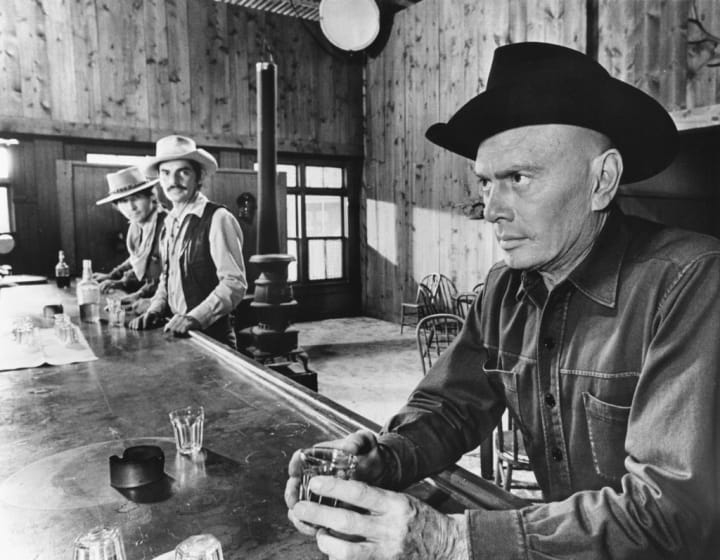
As Westworld the movie is limited by its runtime, its scope is narrowed to focus on two core characters in a very specific conflict. The series, being longer, is allowed to sprawl all over the place.
Michael Crichton's original film focuses on two characters. Richard Benjamin plays Peter Martin, who is new to the park. James Brolin plays John Blane, a frequent visitor to the theme parks.
The series focuses on multiple facets of the park. It looks through the eyes of guests, of employees, and, most intriguingly of all, through the eyes of the androids. One of the core characters of the series is Dolores, a "host" who, despite her appearance, is the eldest of all the lifelike androids. Whereas the original film's Gunslinger is presented as "the other," further established by his pixilated, digitized world view, Dolores is shown as borderline human. This immersion in her perspective really sets the series apart from the film, which only focused on the viewpoint of the guests.
Lifelike Androids
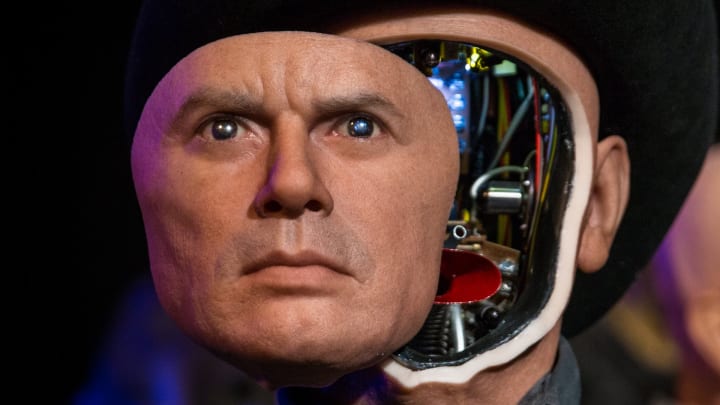
A lot of time is spent in Westworld the series to establish the androids as incredibly lifelike constructs, able to respond and react in realistic, credible manners. In fact, as the series progresses, it becomes aware that the Hosts are capable of developing beyond their programming in ways that almost make them human.
The film does none of this.
The androids of the film are animatronics. They are soulless shells that sometimes fail to respond to interaction. The fact that the Gunslinger goes mental is just the Gunslinger's automated programming glitching, essentially. Part of a wide-spread glitch that just makes robots go wrong.
On the other hand, the "glitching" in the series is really the Hosts becoming self-aware of their fate.
The series's hosts illicit sympathy because they are very much like people. The androids of the film illicit discomfort because, despite their outer appearance, they are so not human.
Diversity
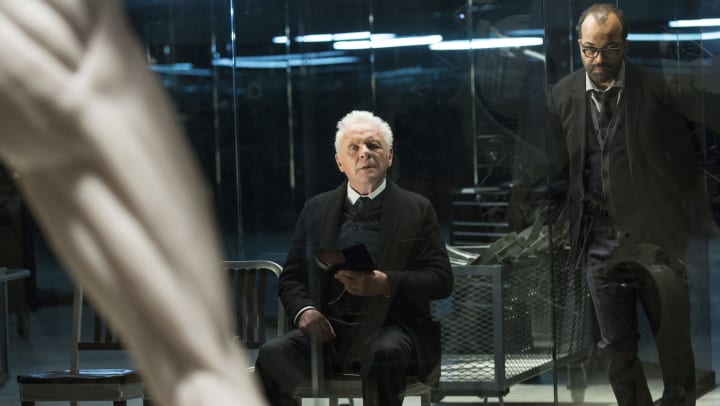
The world is a very different place now than in the 70s. The first genre film to have a black lead was 1968's Night of the Living Dead. Most science fiction would have a black side-character in a limited, almost stereotypical role, with few exceptions (Star Trek being one of them).
The original Westworld is not a progressive film, nor is it very concerned with a diverse cast. Almost all the core characters are male. The only women given any attention are sex bots that the main characters are permitted to have sex with. Of course, as these women are just dolls, they don't have to give consent or even acknowledge the other person. They're dolls.
The cast of the series, however, is very diverse. Bernard, for example, is one of the main staff members of Westworld. He is also black. Dolores is one of the main Hosts in the series. These are just two core characters of a very diverse cast, especially considering that the theme park recreates an era of history not known for its sexual or racial equality.
This may be seen as a small detail. Indeed, maybe it is to some viewers. Maybe it is unimportant that a science fiction series that explores the nature of humanity features a diverse cast. Or maybe its equally unimportant that a science-fiction horror film exploiting universal fears features only older white men.
Or, maybe, you see this as a sign of how science-fiction has progressed as a genre since the 70s. One or the other.
The Movie Is Sci-Fi Horror
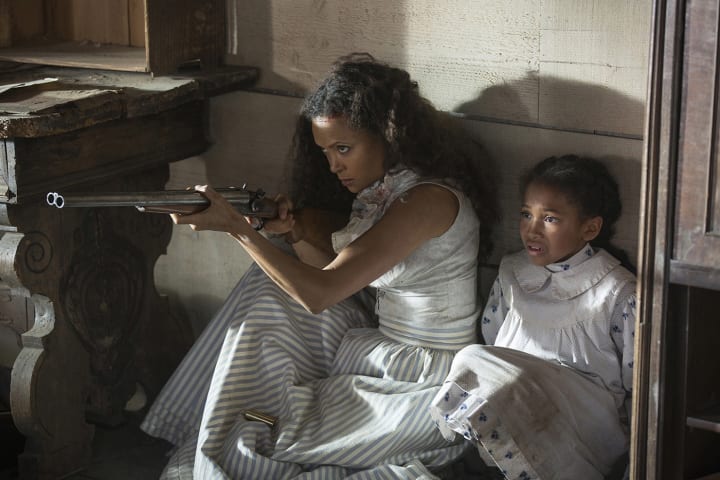
Westworld the series is definitely a science fiction series. The film is more of a horror story.
While both use science fiction elements, their focus is on different things. Michael Crichton's film is more a warm-up act for his more famous science-fiction horror story, Jurassic Park. Both films are about theme parks that end up going a little crazy, and the guests have to run for their lives.
The Gunslinger is a force of destruction. He has more in common with Halloween's Michael Myers than Ed Harris's nuanced Man in Black. Which leads to another big difference...
Man in Black Vs The Gunslinger
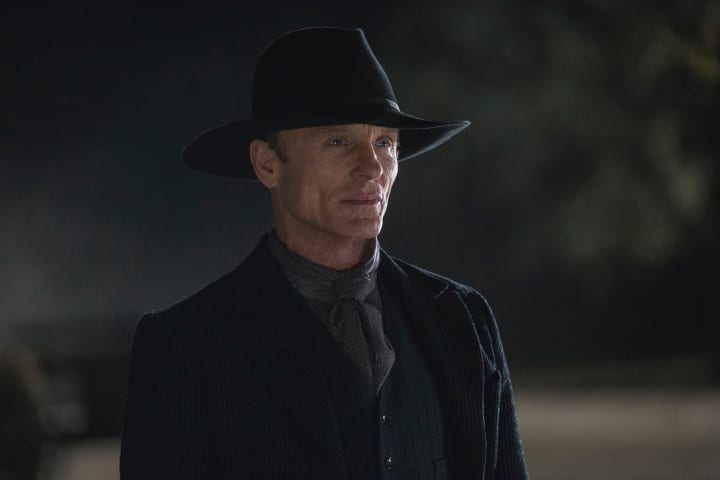
In both versions of Westworld, a man with a black hat and a gun serves as an antagonist. They look a lot a like.
And... that's about it.
The Gunslinger (Yul Brynner) is a shape. A villain. A force. He is a haywire robot that attacks the guests to kill them.
The Man in Black is not a robot. He's a human, traveling throughout the Park with his own, personal motivations. The role goes from the core enemy to a bug in the system that derails the Hosts from their regular affairs.
One Core Difference
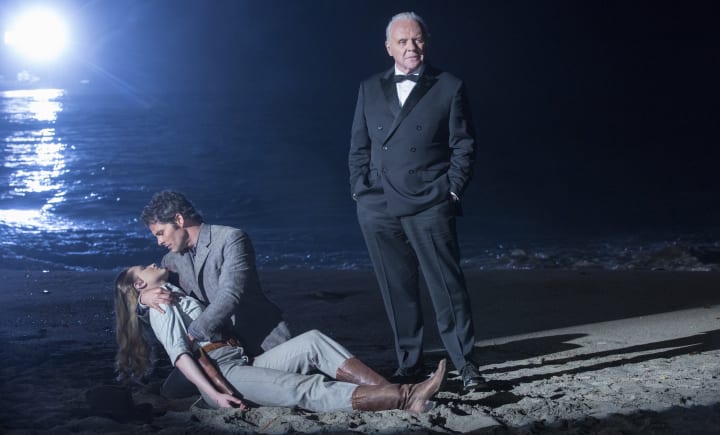
When you get right down to it, all the differences can be summed up in short.
The new Westworld is about humanity, while the original isn't.
The original is a thriller. It is a ride. It never was supposed to be more than that. But the series saw that untapped potential, and explored it.
The original film is an outline for Jurassic Park, and, even then, doesn't bother exploring the scientific implications. The original film is a silly science fiction romp. The series is something... more adult.
About the Creator
Anthony Gramuglia
Obsessive writer fueled by espresso and drive. Into speculative fiction, old books, and long walks. Follow me at twitter.com/AGramuglia






Comments
There are no comments for this story
Be the first to respond and start the conversation.